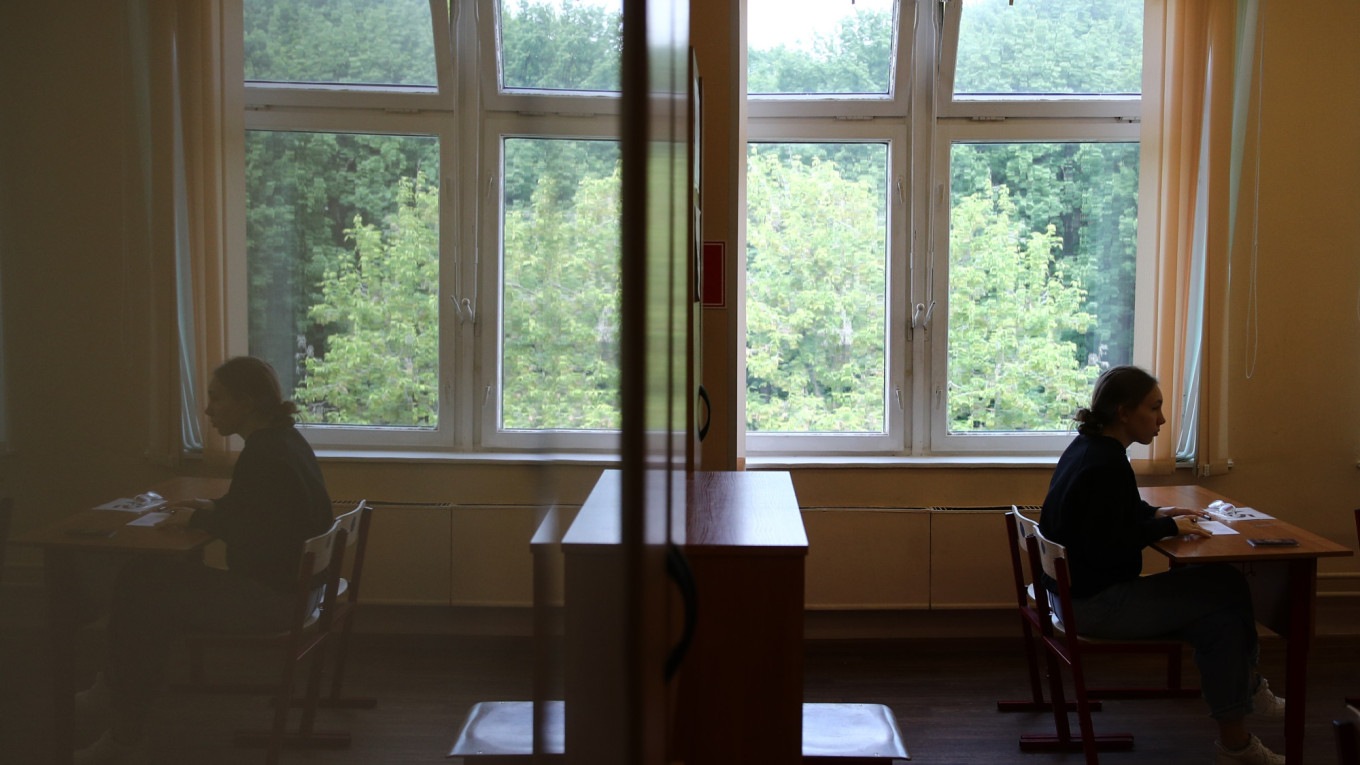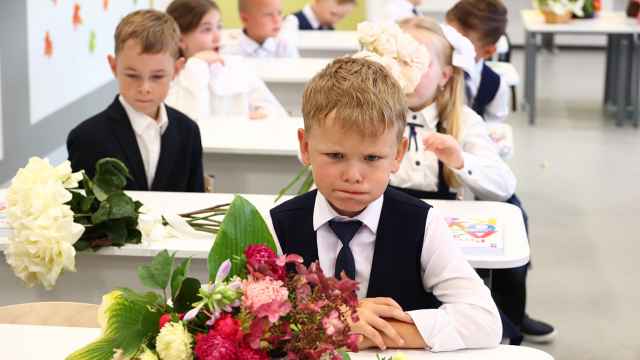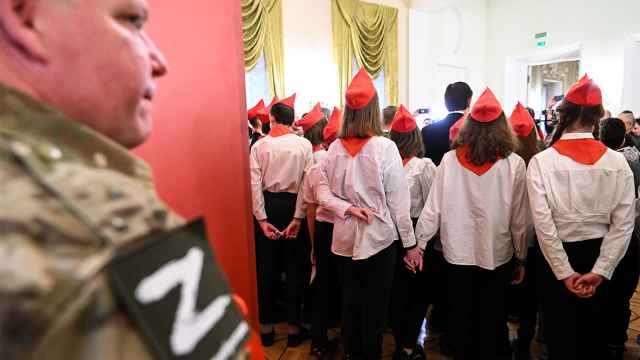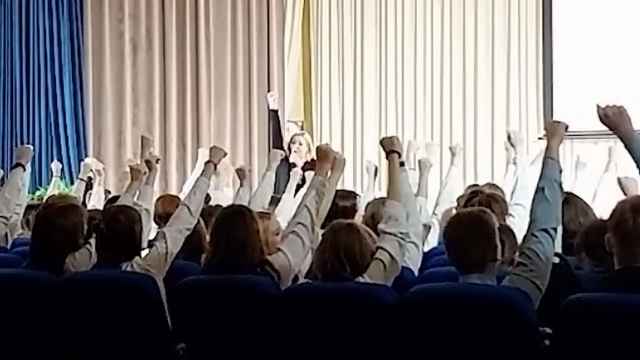“Children have the right to choose their own path. Our son chose his and we will walk it with him, no matter what.”
These are the words of the mother of a Russian teenager now serving a prison sentence for opposing the war in Ukraine.
While his family knew about his political views, they never expected him to take public action.
“We always thought we understood each other: if you speak out, you won’t change anything — you’ll only make your own life harder,” the mother said in an interview with The Moscow Times, reflecting on the risks they had discussed long before her son’s protest. She spoke on condition of anonymity for safety reasons.
Her son will spend five more years in prison.
His case is one of a growing number of instances in Russia where schoolchildren who express anti-war views face pressure — from teachers reporting them to the authorities to interrogations at police stations.
In some cases, teenagers are sentenced to prison, separated from their families and forced to continue their studies while in detention.
Opposition teens
It is difficult to estimate how many Russian teenagers oppose or support the war. Sharing these views openly, even with friends or classmates, can be dangerous. At least 544 minors had been detained over anti-war protests as of 2023, according to human rights watchdog OVD-Info.
Yet that has not stopped some teenagers from questioning the invasion.
This week, a prosecutor in Kazan sentenced 15-year-old activist Sevastyan Sultanov to one year of restricted freedom and barred him from attending public events. His crime: painting two pieces of anti-war graffiti and expressing support for the late Kremlin critic Alexei Navalny.
In another case, Varvara Galkina, who was just 10 at the time, was reported to police by her school principal for posting an online poll about the war and changing her profile picture in a student chat to an image of Saint Javelin, a pro-Ukrainian meme.
Galkina and her mother were summoned to the police station for questioning, and the family was placed on a watchlist by the juvenile affairs commission.
Denis Bushuev, a promising athlete on the national ski jumping team, staged a solo protest on the first anniversary of the invasion at age 17. Holding a sign that read “No to war. No to madness” on the main street of his hometown, Nizhny Novgorod, he was detained and fined the maximum penalty — 50,000 rubles ($600) — for “discrediting the Armed Forces.”
Silent protest
“I don’t talk to others about my stance and try to avoid controversial topics altogether,” said 16-year-old Darya in an interview with the youth media project Novosti 26.
“It bothers me when people try to force those conversations,” she said.
But these conversations are difficult to avoid. Since September 2022, Russian schools have implemented weekly lessons titled Conversations About Important Things, designed to instill patriotism and align students with the government’s perspective on domestic and foreign policy.
While the war is not discussed every week, major events — such as the anniversary of Russia’s annexation of Crimea, which is officially termed a “reunification” — are addressed in class. Soldiers and fighters from the Wagner mercenary group also visit schools to give lectures.
Keeping silent is one of the main pieces of advice offered to the 5,000 subscribers of Novosti 26, a media project for teenagers founded by writer and journalist Linor Goralik.
“One of the first texts we published was called To Speak or To Stay Silent,” Goralik told The Moscow Times. “It’s updated regularly and explains the situations where you absolutely should not say anything, especially not about politics, unless you’re alone with someone you completely trust.”
“There was this overall sense of confusion — ‘war is bad’ was [clearly off-limits], but nothing else was,” she said. “That’s why I started the project: so they could understand the details in their language.”
Beyond informing teens, the project responds to their letters, some of which describe bullying, fear or broken friendships.
“One girl wrote about how her teacher bullied her because she was ‘protest-minded.’ Others tell us how politics is ruining their friendships,” Goralik said of the letters sent to Novosti 26. “But we repeat this endlessly: do not talk about politics unless you are face-to-face with someone you trust completely.”
Teens behind bars
One of Russia’s youngest political prisoners is Arseny Turbin, who was 15 when he was placed under house arrest in the summer of 2023.
Authorities accused Turbin of joining the Freedom of Russia Legion, a unit of Russian volunteers fighting as part of the Ukrainian Armed Forces that Russia designates a terrorist organization. Investigators also alleged that Turbin shared videos and distributed leaflets criticizing Russian officials and President Vladimir Putin.
Turbin, recognized as a political prisoner by the Nobel Peace Prize-winning human rights organization Memorial, denied any affiliation with the military unit. Nevertheless, he was added to Russia’s list of “terrorists and extremists” and sentenced to five years in a juvenile penal colony.
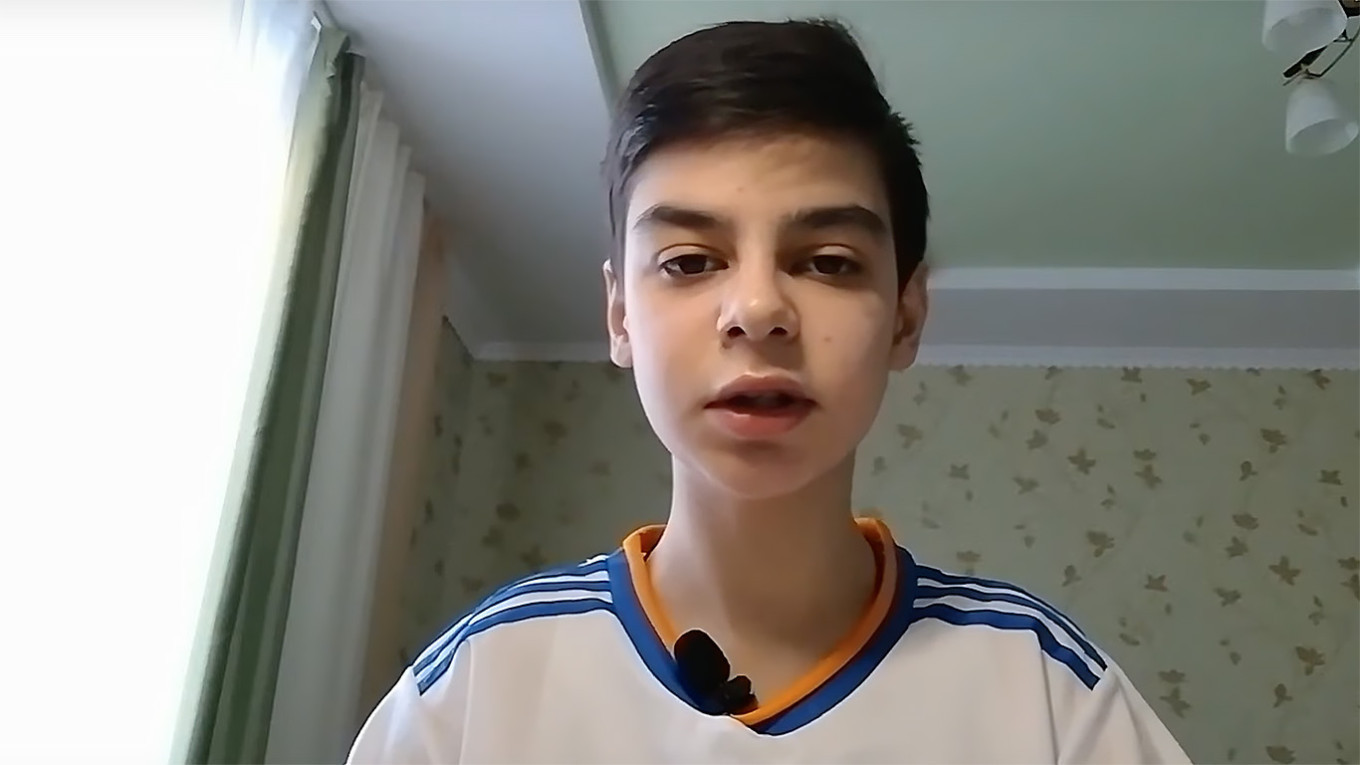
Yegor Balazeykin was 17 when he was sentenced in 2023 to six years in prison on terrorism charges. Investigators say he attempted to set fire to two military enlistment offices using Molotov cocktails in protest of the war. The devices failed to ignite.
Balazeykin admitted to attempting to set fire to the military recruitment office but said he did not have terrorist intentions. His goal, he said, was to carry out a symbolic act of protest to draw attention to the war and the loss of lives in Ukraine after his uncle was killed in combat.
Balazeykin, who suffers from incurable autoimmune hepatitis and chronic liver fibrosis — conditions that have worsened in detention — was also designated a political prisoner.
From prison, he has refused to renounce his anti-war stance.
“The war has torn apart all hopes of Russia and the Russian people for progressive development, for the protection of the individual and human values,” Balazeykin wrote in a letter from prison on the third anniversary of the full-scale invasion.
“The one that was never officially called a war.”
A Message from The Moscow Times:
Dear readers,
We are facing unprecedented challenges. Russia's Prosecutor General's Office has designated The Moscow Times as an "undesirable" organization, criminalizing our work and putting our staff at risk of prosecution. This follows our earlier unjust labeling as a "foreign agent."
These actions are direct attempts to silence independent journalism in Russia. The authorities claim our work "discredits the decisions of the Russian leadership." We see things differently: we strive to provide accurate, unbiased reporting on Russia.
We, the journalists of The Moscow Times, refuse to be silenced. But to continue our work, we need your help.
Your support, no matter how small, makes a world of difference. If you can, please support us monthly starting from just $2. It's quick to set up, and every contribution makes a significant impact.
By supporting The Moscow Times, you're defending open, independent journalism in the face of repression. Thank you for standing with us.
Remind me later.



